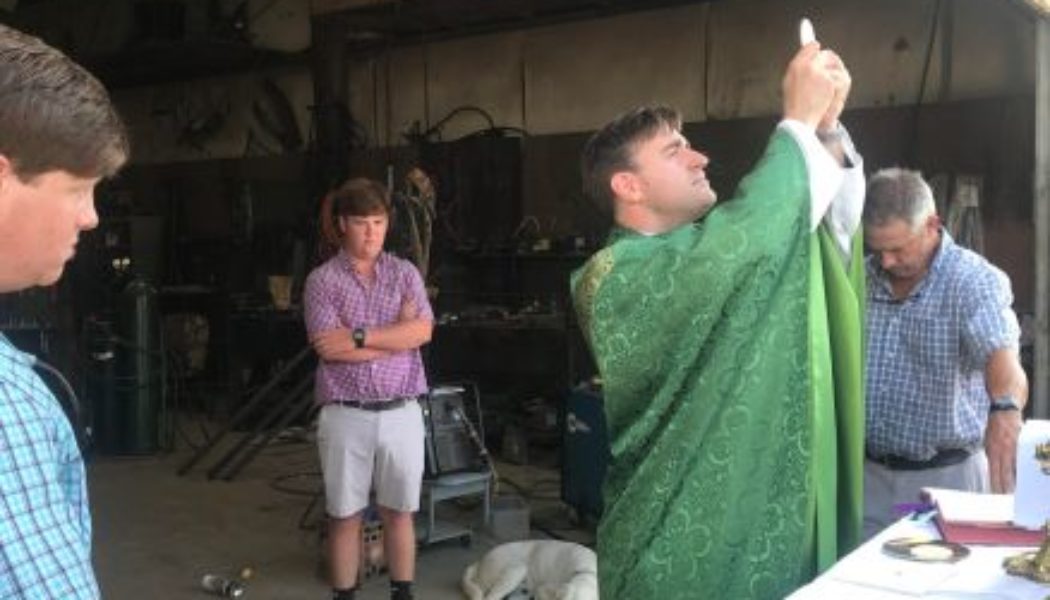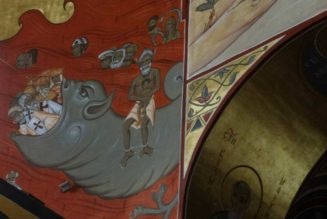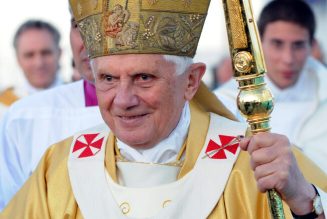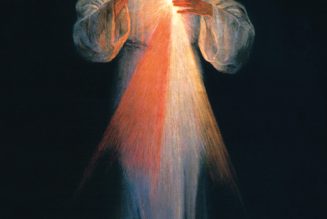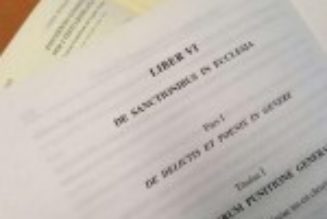
For you love all things that exist,
and detest none of the things that you have made,
for you would not have made anything if you had hated it.
How would anything have endured if you had not willed it?
Or how would anything not called forth by you
have been preserved?
You spare all things, for they are yours,
O Lord, you who love the living. – Wis. 11:24-26
Sunday’s readings for Holy Mass were the end of a trio of Sunday “epiphanies” — the first an epiphany of Christ revealed to the pagan Magi; the second an epiphany of the mystery of the Trinity over the Jordan river at Christ’s baptism as the Father’s voice thundered over his Son and the Spirit descended as a dove; and a third epiphany of Jesus’ eucharistic water-to-wine sign at Cana’s wedding feast that revealed his mystic identity as a Bridegroom.
Sunday’s first reading, if you read it again, is a soaring prophetic vision of God’s longing to “marry” his covenanted people and their “land.” God created the world out of love and saw it was good and beautiful (the double meaning of ṭō·wḇ/kalon in Genesis 1:4). The rest of the Bible sees this primal divine disposition as the origin of God’s unfolding story as the Bridegroom of the whole creation. And, in John 1:1-18, we see God sealing this union when he took on flesh — the matter of creation — as his own; and then in the Resurrection God took our broken world up again and consummated his wedding with creation eternally.
This nuptial vision of a Creator God shows him to be, in the words of St. Catherine of Siena, pazzo “crazy” and “inebriated with love” for all he has made. Every quark of it. At Cana Jesus reveals God’s divinizing embrace of matter in the water-made-wine as he unveils the sacramental economy. Pope Francis in Laudato si, while quoting his predecessor Pope Benedict, captures something of the dizzying wonder of this nuptial cosmology that man is swept up into in the liturgy:
All creatures are moving forward with us and through us towards a common point of arrival, which is God, in that transcendent fullness where the risen Christ embraces and illumines all things. Human beings, endowed with intelligence and love, and drawn by the fullness of Christ, are called to lead all creatures back to their Creator.
It is in the Eucharist that all that has been created finds its greatest exaltation. Grace, which tends to manifest itself tangibly, found unsurpassable expression when God himself became man and gave himself as food for his creatures. The Lord, in the culmination of the mystery of the Incarnation, chose to reach our intimate depths through a fragment of matter. He comes not from above, but from within, he comes that we might find him in this world of ours.
In the Eucharist, fullness is already achieved; it is the living center of the universe, the overflowing core of love and of inexhaustible life. Joined to the incarnate Son, present in the Eucharist, the whole cosmos gives thanks to God. Indeed the Eucharist is itself an act of cosmic love: “Yes, cosmic! Because even when it is celebrated on the humble altar of a country church, the Eucharist is always in some way celebrated on the altar of the world”.
The Eucharist joins heaven and earth; it embraces and penetrates all creation. The world which came forth from God’s hands returns to him in blessed and undivided adoration: in the bread of the Eucharist, “creation is projected towards divinization, towards the holy wedding feast, towards unification with the Creator himself”. Thus, the Eucharist is also a source of light and motivation for our concerns for the environment, directing us to be stewards of all creation.
What a gargantuan and compelling vision of creation’s ultimate destiny in the ever-expanding New Creation, and of our priestly role in that destiny. It is Christianity’s powerful and deeply spiritual alternative to the oft-maligned “Gaia” elements of the environmentalist movement, that attempt to weave transcendent dimensions into a world disenchanted by modernity. We should be the most mystically impassioned environmental activists around, anxious to employ the best of God-given scientific reason informed by a robust moral vision to guide our efforts.
This eschatology also grounds a truly “worldly mysticism” for us Christian lay faithful who have been entrusted by God with stewarding the secular order as a diakonia “service” to God’s plan for the world’s Cana transformation. Because, as we know, the secular laity enter into intimate union with God above all by “doing the world” as God would have us do it, enacting his will to cultivating the garden of creation through the labor of civilization building, governed by justice and love.
In such an integrated vision, expressed powerfully by both Popes, the participation of the laity in the celebration of the Sunday Eucharist becomes a singular opportunity for them to discover the unique manner in which they are to serve as “midwives” in the labor and delivery room of creation.
For the creation waits with eager longing
for the revealing of the children of God;
for the creation was subjected to futility,
not of its own will but by the will of the one who subjected it,
in hope that the creation itself will be set free
from its bondage to decay and will obtain the freedom
of the glory of the children of God.
We know that the whole creation has been
groaning in labor pains until now
and not only the creation, but we ourselves,
who have the first fruits of the Spirit,
groan inwardly while we wait for adoption,
the redemption of our bodies.
For in hope we were saved. – Rom. 8:19-24
Such lay lovers of the cosmos, who see their mission in the world this enormous way, can join in the prayer of St. Isaac the Syrian, prayed on the outskirts of the city of Nineveh in the seventh century:
What is a charitable heart?
It is a heart that is burning with charity for the whole of creation,
for men, for the birds, for the beasts, for the demons — for all creatures.
He who has such a heart cannot see or call to mind a creature
without his eyes becoming filled with tears
by reason of the immense compassion that seizes his heart,
a heart that is softened and can no longer bear to see
or learn from others of any suffering,
even the smallest pain, being inflicted upon a creature.
This is why such a man never ceases to pray also for the animals,
for the enemies of the Truth, and for those who do him evil,
that they may be preserved and purified.
He will pray even for the reptiles,
moved by the infinite pity that reigns in the hearts
of those who are becoming united to God.
{after this long read, I invite you to savor the beauty of Sunday’s first reading in song…}
Join Our Telegram Group : Salvation & Prosperity
